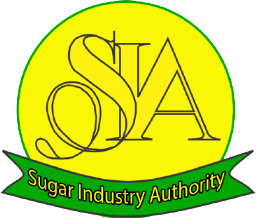New Smut and Rust Outbreak - SIA
Main menu:
New Smut and Rust Outbreak
Research > Documents > Circulars
New Smut and Rust Outbreak
The sugar cane industry is undergoing its second smut & rust outbreak. The first took place in the 1970s. By early 1980s that outbreak was brought under control and we have enjoyed two decades of relative freedom from disease. Now suddenly we have a new smut and rust outbreak on our hands. Fortunately, this outbreak is likely to be of lesser consequence because area under susceptible varieties is just some 10% of total compared with 50% in the 1970s when HJ5741 and B4362, the major varieties grown at the time went down with the diseases. Furthermore, the first outbreak hit when the industry was producing some 3.5 million tonnes cane per annum. Today, the scale of production has dropped to under 2 million tonnes so in effect affected area is just over 5% of 1970s cane area.
This time, thankfully, the major varieties – BJ7504, BJ7465 and BJ7015 are not affected. The blow has been primarily to promising new varieties, such as J9501, BJ8532 and BJ8534 which were being rapidly propagated and must now be removed because of smut susceptibility. With the orange rust the picture is less clear but will become clearer in a few months. The varieties known to be affected are mainly BJ9186, BJ7230 and BJ82156. Fortunately these are varieties largely confined to the St Thomas-Ye-Vale area of St Catherine.
Disease Strains
Diseases are never static. From time to time new diseases cross borders and enter new environments and old diseases mutate to produce new strains. Varieties that are resistant to an existing mix of diseases and strains of diseases may prove susceptible once that mix is changed. Though we were essentially freed of smut and rust for over two decades, we now seem to have a new smut strain that forces removal of the varieties named and will eliminate a lot more in the ongoing variety selection process.
This experience is not unique to Jamaica. Orange rust was present in Australia for over 100 years and caused little concern until 2000 when a new strain emerged to cause severe losses in that industry. That strain has now apparently found its way into the Americas where it was first detected in Florida in 2007 and has since been reported from Guatemala, Costa Rica, Nicaragua, Cuba and Jamaica. In Jamaica it has so far been seen mainly in the Lluidas Vale/Bog Walk area. However, orange rust shows up mainly in maturing cane and so as Aug/Sep approach there will be a better opportunity to discern varieties affected and the exact extent of its distribution.
Recommendations
There should be no further planting of J9501, BJ8532, BJ8534, BJ7230, BJ9186 and BJ82156. Growers should give priority to removing these varieties from cultivation after harvest, starting with the worst infected fields. For smut infected fields, plough the land thoroughly and if possible wet to trigger spore germination. After soil has dried out sufficiently resume and complete land preparation and planting. Use only resistant varieties recommended by SIRI’s Area Agronomists as replacements. Remember, SIRI is empowered by the Sugar Industry Authority to issue a list of recommended varieties for any given time or circumstance. As custodians of the Industry’s health, SIRI asks every grower to assist in keeping our sugar cane fields as disease free as possible. Plant only disease tested and recommended varieties. No SIA loans will be approved for growers planting varieties which are not recommended.
Emergency Certified Seed Cane Programme
The only pragmatic way of addressing sugar cane diseases is to replace susceptible varieties with resistant ones. This will call for a sharply increased replanting rate starting in the 2009/10 crop. To partly address an anticipated shortage of seed cane of recommended varieties, SIRI has already launched an Emergency Certified Seed Cane programme designed to establish some 10 ha of good quality seed cane in each of 5 ecological areas. These are being planted to newly released, recommended varieties such as BJ82105, BJ8783, CR892023, BT80311 and BJ8841 which should be at a suitable growth stage to be the core of a secondary nursery programme in the spring of 2010. Major estates are also encouraged to establish seed cane nurseries before the end of August to meet the next crop’s replanting needs. SIRI will work with estates in identifying seed sources and ensuring purity of stands.
There are also plans to revive the regular Certified Seed Cane programme in 2010 to ensure an ongoing supply of good quality seed. Farmers with a good track record of cane husbandry may apply under this scheme. For certification, SIRI must be satisfied that nurseries are of pure stands of recommended varieties and that appropriate agronomic practices are applied. At least 50% of seed cane so produced must be made available for sale to other growers; the rest may be used in the farmer’s own replanting programme.
Tissue Culture
SIRI is also exploring the use of tissue culture technology to rapidly multiply the newly released elite varieties so that commercial nurseries may be more quickly established. The Scientific Research Council has considerable laboratory space and has done work on culturing sugar cane in conjunction with SIRI in the past.
Training Workshops
To ensure that the message of managing this smut and rust outbreak reaches as many farmers as possible, SIRI will be inviting farmers to a Seminar towards the end of July at a date and venue to be announced shortly. In addition SIRI will be conducting a series of Workshops in the respective cane growing areas starting in August, 2009. The SIRI Extension Officers will advise growers of the respective dates and venues.
Orange Rust on BJ82156
Orange Rust pustules cover underside of leaf
Orange Rust, BJ82156, Worthy Park, 2009
Orange Rust, Puccinia kuenhii.
Smut in BJ8532
Smut-infected stool
Smut Whip



